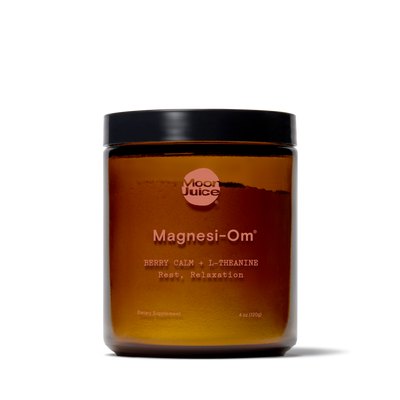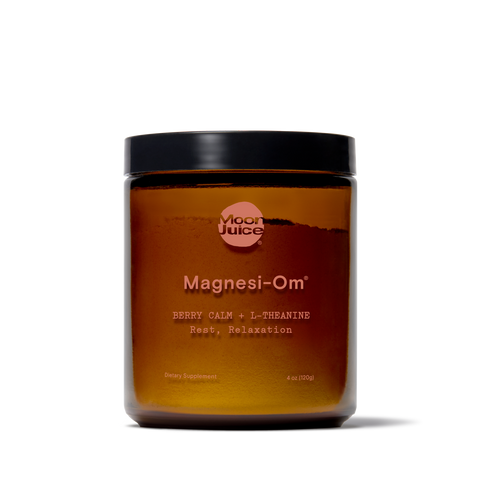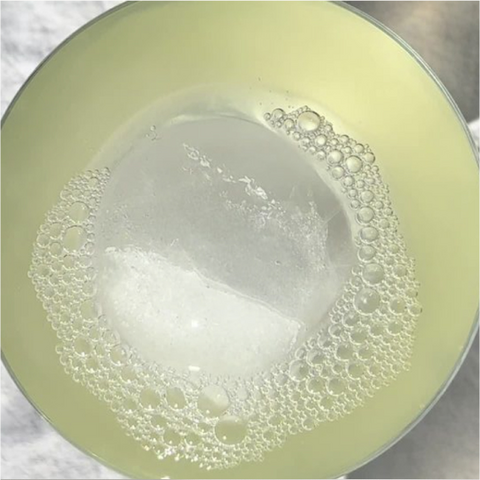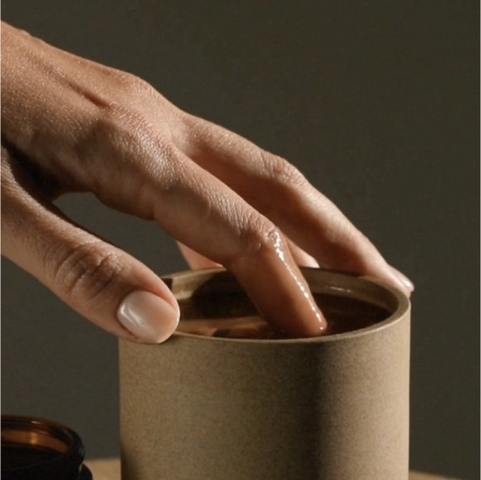Whether you’ve saved up your PTO for a much-deserved getaway or travel over the holidays to break bread with friends and family, there’s one not-so-pleasant phenomenon that happens to the best of us: constipation and/or difficulty passing regular bowel movements while traveling. If you’ve ever asked yourself why you can’t poop on vacation, know that you’re not alone. A perfect storm of triggers — including dehydration, stress, and straying from your typical diet — can build up and result in vacation constipation.
Keep reading for answers — and more importantly, solutions — to the age-old question: Why can’t I poop on vacation?
Common Causes of Vacation Constipation
Changes in Diet
Dietary shifts are among the most common reasons why you can’t poop on vacation. When you’re closer to home and in your normal routine, chances are you typically stick to the same types of meals and snacks, as well as the times you eat them.
When you’re on vacation, however, you might:
- Dine out more often
- Not having access to a kitchen, home-cooked meals, or fresh foods
- Snack on processed foods or different foods your body isn’t used to more frequently
- Have your mealtimes thrown off
- Enjoy more sweets and treats than usual
Any of these dietary changes can disrupt your typical digestive health, thus resulting in travel constipation and less frequent BMs.
Disrupted Circadian Rhythm
If you’re traveling across time zones, vacation constipation may be likely due to disruptions to your circadian rhythm (i.e., your internal clock). Per a 2020 review published in the Journal of Clinical Gastroenterology, healthy people typically pass BMs in the morning and/or following a meal and have less frequent bowel motility at nighttime. As such, you might experience undesired digestive changes until your circadian rhythms adjust to your new time zone. In fact, the researchers also noted that maladjusted circadian rhythms — whether due to travel or not — have been linked to constipation and irritable bowel syndrome (IBS).
Dehydration
Dehydration is highly common while traveling. Air travel — especially during long-haul flights — is inherently dehydrating due to high altitudes and dry cabin air. Beyond that, the hustle and bustle of getting from one place to the next may lead you to forget to sip on H2O throughout your journey. Increasing your alcohol intake while on vacation mode is yet another sneaky trigger of dehydration. In order to combat travel constipation and keep your digestive health in check, make sure you are drinking plenty of water during the entire duration of your trip.
Drinking enough fluids is crucial for helping with gut motility, and low fluid intake is associated with constipation. When you forget to stay on top of your hydration game, you might not be able to poop on vacation.
Lack of Physical Activity
Per a 2020 study published in the Journal of the American College of Nutrition, insufficient physical activity is among the most common risk factors for constipation. Whether you spend a long period sitting on a plane or train or in the car, chances are you won’t be logging many steps on travel days. Moreover, if you opt for an R&R-style getaway versus something more dynamic and adventurous, this lack of physical activity can also hinder your ability to poop while on vacation.
Stress and Anxiety
Perhaps you’re stuck in traffic en route to catching your flight, your itinerary doesn’t go as planned, or you’re lost in a remote area without cell phone service. Any of these stress-inducing scenarios can have a domino effect not only on your mind and mood, but also your digestive patterns via the workings of the gut-brain axis. A large body of research shows that stress induces somatic symptoms, with constipation among them. IBS — one symptom of which is changes in the consistency of your stool — is also closely linked to stress and anxiety.
Tips for Vacation Constipation
Stay Hydrated
Since hydration is key for countless aspects of your health and well-being — with digestive function among them — sipping on fluids throughout the day is key to providing constipation relief.
To boost your hydration status while away, aim to:
- Pack (and frequently refill) a reusable water bottle
- Buy jugs or bottles of water once you arrive
- Sip on fluids before and after your meals
- Add electrolytes to water to promote fluid balance
Maintain a Balanced Diet
Though vacations provide a prime time to treat yourself, moderation is still the gold standard to keep your digestion and overall well-being on track. That’s not to say that you should avoid all treats and adhere to a strict dietary regimen. Conversely, you may find that you’ll have an easier time pooping on vacation — not to mention more sustained energy levels — by balancing your diet to the best of your ability with high-fiber foods for constipation.
This could look like:
- Following the 80-20 rule (prizing healthy, whole foods 80 percent of the time and loosening up for the other 20 percent)
- Snacking on fruits and veggies (rather than processed fare) throughout the day
- Enjoying a balanced dinner of protein, complex carbs, healthy fats, fiber, and veggies before enjoying a sweet treat
Following a fiber-rich diet is one of the best natural remedies for constipation relief. If you’re on vacation struggling with gut motility, make sure to order foods that will increase your fiber intake for the day and are packed with nutrients.
Stay Active
While you’ve earned your vacation time and should allow yourself to slow things down, moving your body throughout the day is a key hack to avoid not being able to poop on vacation. This certainly doesn’t mean that you have to lift weights, hike, or run every day, unless that’s your idea of a vacation well spent.
At any rate, aim to move your body whenever possible. Opportunities to do so while on vacation include:
- Doing some light stretching upon waking up or going to sleep
- Walking to sites and meals instead of relying on other modes of transit
- Using hotel facilities like the pool or gym
- Using the stairs whenever possible
Take Supplements (Magnesium & Probiotics)
Since traveling has the ability to throw you (and your digestive system) off track, it’s wise to pack supplements to help get you back to your baseline. In terms of digestion and gut health, probiotics can help by offering friendly bacteria to balance your gut, thus encouraging digestive ease, especially when you’re eating different foods than what you’re used to.
A Magnesium drink powder is another great travel-friendly supplement since it can keep several causes of vacation constipation at bay. Depending on the type of Magnesium you use, this overachieving mineral can help:
- Fill in dietary gaps
- Promote digestive function and bowel regularity
- Relax your muscles and mind (i.e., ease physical and mental stress)
Fix Your Positioning
No matter if you’re on vacation or not, your posture and positioning on the toilet contribute to how well your stools evacuate your system. Aim to sit up straight rather than slouching. Plus, if and when possible, elevate your legs in a squat-like position.

Stay Regular on Vacation With Magnesi-Om
Though not being able to poop on vacation is common, it’s not inevitable — especially if you sidestep its causes and adopt the foolproof tips listed above. Moreover, a natural Magnesium powder can function as a complementary form of travel insurance for your digestive system.
Magnesi-Om® offers no shortage of perks for your mind and body that can help keep vacation constipation off your radar. It offers the following 3 forms of bioavailable Magnesium:
- Magnesium Citrate helps with regular bowel movements*
- Magnesium Gluconate supports muscle relaxation*
- Magnesium Acetyl Taurinate promotes cognitive function and mood*
The blend also includes L-Theanine, a nootropic amino acid that helps keep you calm.* Altogether, the ingredients in this Magnesium powder supplement address nearly all of the main triggers of not pooping on vacation — dietary gaps, stress, and dehydration — so you can focus more on having fun and less on tummy and toilet troubles.
Sources
- PubMed Central. Disruption of Circadian Rhythms and Gut Motility. https://www.ncbi.nlm.nih.gov/pmc/articles/PMC7147411/
- PubMed Central. Up in the Air: Evidence of Dehydration Risk and Long-Haul Flight on Athletic Performance. https://www.ncbi.nlm.nih.gov/pmc/articles/PMC7551461/
- PubMed. Water and fluid intake in the prevention and treatment of functional constipation in children and adolescents: is there evidence? https://pubmed.ncbi.nlm.nih.gov/28450053/
- PubMed. Risk Factors for Constipation in Adults: A Cross-Sectional Study. https://pubmed.ncbi.nlm.nih.gov/32077808/
- PubMed CentRAL. The gut-brain axis: interactions between enteric microbiota, central and enteric nervous systems. https://www.ncbi.nlm.nih.gov/pmc/articles/PMC4367209/
- PubMed Central. Does stress induce bowel dysfunction? https://www.ncbi.nlm.nih.gov/pmc/articles/PMC4249634/
- Anxiety UK. Irritable Bowel Syndrome. https://www.anxietyuk.org.uk/anxiety-type/irritable-bowel-syndrome/














